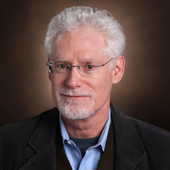Vanderbilt University’s Center for Interdisciplinary Health Workforce Studies has been awarded $2.2 million from the Gordon and Betty Moore Foundation to address nursing workforce issues that may impede future health care.
“The importance of registered nurses is expected to increase in the coming decades to address significant challenges within our health care system, but empirical workforce research is necessary to help us understand how to better address the issues,” said Peter Buerhaus, Ph.D., R.N., director of the Center for Interdisciplinary Health Workforce Studies at Vanderbilt University and Valere Potter Distinguished Professor of Nursing.

Certain regions in the United States, particularly rural areas, continue to report a shortage of nurses, especially in specialties such as operating room and labor and delivery.
The expected increased demand for health care services due to health care reform — including those services provided primarily by nurses — is likely to create a significant strain on the nursing workforce.
Further, there are new models of care delivery and a greater emphasis on prevention that will require comprehensive care, greater care coordination and adherence to protocols and improved management of chronic disease — roles that are inherently aligned with the nursing model of care.
Unfortunately, experiential data to better understand the impact of these issues on the nursing workforce, including how to prepare for and address them, is fragmented and not very robust.
“Our first-hand research and analysis will help support action to ensure that the U.S. nursing workforce continues to meet the needs of patients and is prepared and positioned to promote better outcomes and high quality care,” Buerhaus said.
The Center for Interdisciplinary Health Workforce Studies at Vanderbilt University is poised to be a driver in bringing stakeholders together to identify tangible ways to address workforce challenges identified by the research, Buerhaus said.
The center will play a key role in leading enhancements of the field through activities such as:
• Providing Ph.D. students and post-doctoral fellows the opportunity to enhance their quantitative research skills and develop experience in moving research into action.
• Developing, supporting and engaging researchers working in health workforce studies, including creating a network of researchers, policymakers, workforce analysts and action-oriented individuals that currently does not exist.
• Building a central online location complete with analysis-ready datasets and other useful materials to fill the void in accessing and sharing information on the nation’s health workforce.












